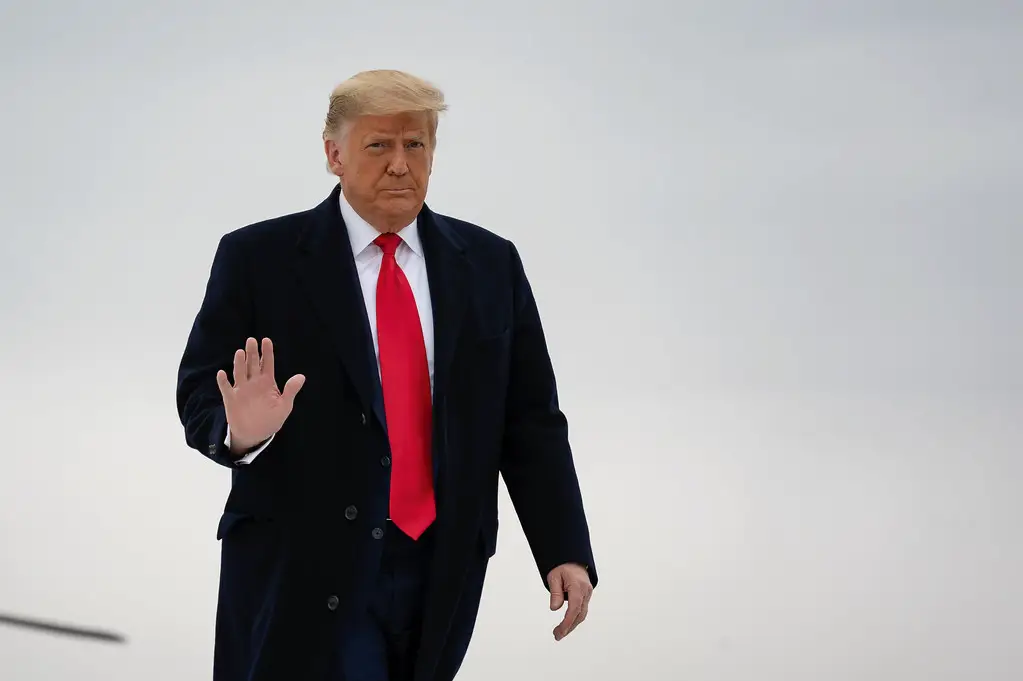The first weeks of Donald Trump’s presidency are unfolding as expected, but that does not make his initial actions any less striking or horrifying. In the United States, few are surprised by this mix of lies, stupidity, and extremism.
Mass deportations, international crises (such as the dispute and threats against Colombia), or the president’s explanation that an air tragedy was due to diversity programs are just small samples of the ongoing and resounding crisis promised by Trumpism 2.0.
As experts in fascism and populism well know, this type of leader often uses their first days in power to downplay legality, increase demonization, and, in the case of fascists—or fascist aspirants like Trump—even resort to deportation and persecution. What we are witnessing is an attempt to set the tone for making acceptable what is normally considered unacceptable in functioning democracies. They want to numb the population with idiotic statements, totalitarian-style lies, and unpredictable and illogical actions. In this context, Latin America seems like an easy arena to manipulate—a stage for noise and spectacle, where little can be done without facing severe economic and political consequences.
Panama is another example of this. The surreal exchange with the Colombian president, who allowed himself and his country to be manipulated and battered, and the use of tariffs to negotiate political rather than economic spectacles show that responding with demagoguery or populism is not an option. It is necessary to devise joint programs to defend national interests rather than making statements on social media.
Unlike full-fledged fascists, Trump’s first days in power have also been somewhat disjointed and uncoordinated, often dominated by inefficiency and unpredictability. Trump is clearly not someone who deeply thinks through what he says or does. This level of ignorance in the highest circles of the U.S. government is, of course, shocking but expected. The figures he has promoted to his cabinet have a tragic record—charlatans, sycophants, and, above all, people lacking true expertise.
Yet, Trump is doing nothing he did not promise to do. He pledged a campaign of shock and awe, and his administration continues it as if everything were a constant plebiscite in which only half the population participates. In all of this, there is a numbing effect on the opposition. There is Trump fatigue among the 48% who voted against the populist leader, as well as among the many who chose not to vote against him. Trump won with 49% of the vote. This, of course, does not give him legitimacy to act unconstitutionally, yet he tries. His administration knows this, which is why they view these first weeks as so crucial.
An American Greenland? The Gulf of America? The takeover of the Panama Canal? These are the kinds of things we can expect from Trump: extreme nationalist propaganda and lies that could become reality if no one cares enough to stop them. Over time, lies will collide with reality, and more citizens will face the truth. In other words, Trump received support based on false promises, and when it becomes more evident that he cannot fulfill them, his legitimacy will diminish.
Trumpism, like Jair Bolsonaro’s administration in Brazil, aspired to a coup when it lost the previous election. This reality cannot be erased with new votes, pardons, or a false rewriting of history. When this happens, democracy is undermined, and dictatorship looms on the horizon. This is what Trump promotes: the new great lies of his so-called legitimacy.
For now, these first weeks provide a spectacle that offers insight into what lies ahead. In this sense, they are deeply symptomatic and must be thoroughly analyzed. Tens of millions of Americans desire and are entertained by this, but something far more troubling is also occurring. Belief is precisely what fuels the Trumpist cult—not evidence, but belief. Belief is key to this extreme political religion. And these spectacles, a kind of circus in the White House, are also part of long-standing rituals of violence and persecution.
It is not only Americans who can be hypnotized by these illogical forms of thinking and their accompanying propaganda and spectacle. But many did not vote for Trump because of this; they did so for economic reasons. As history has shown with previous extremist and authoritarian movements—both fascist and populist—many of these supporters will eventually realize they have believed in false promises and lies. The question is: how soon?
For now, lies reign supreme. The new great lie is that Trump won by a landslide and that this authorizes him to turn the world upside down. This is the grand confusion being promoted at this moment. In a democracy, winning an election does not grant a blank check to erase history or legality.
*Machine translation proofread by Ricardo Aceves.












